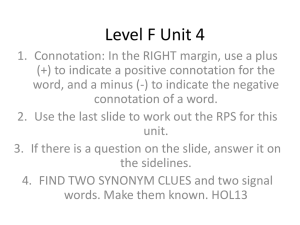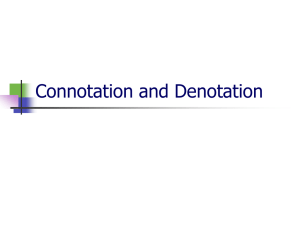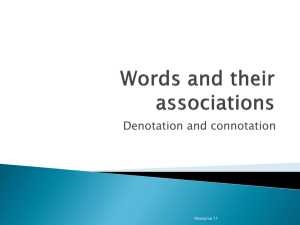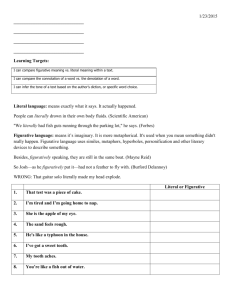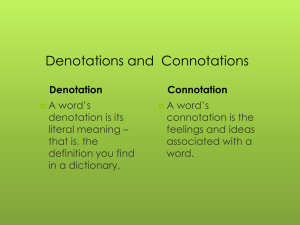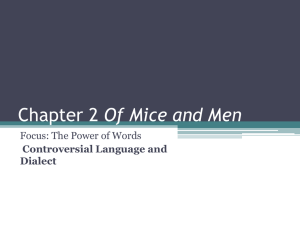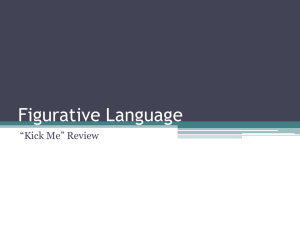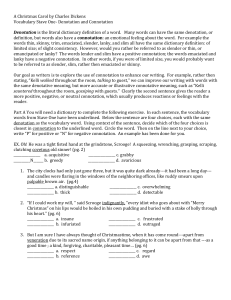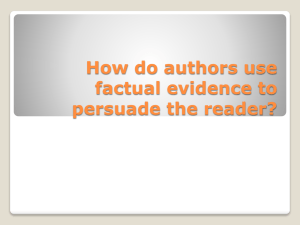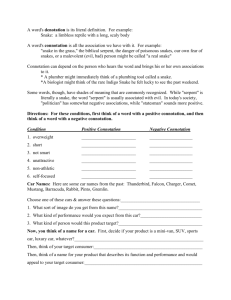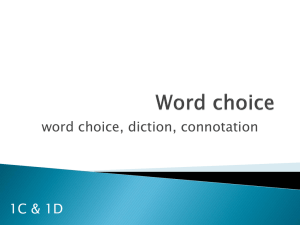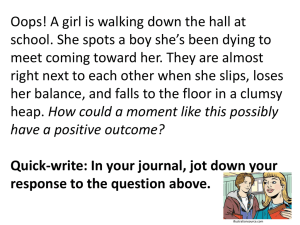week 3 fig and sense language - mkmoore
advertisement
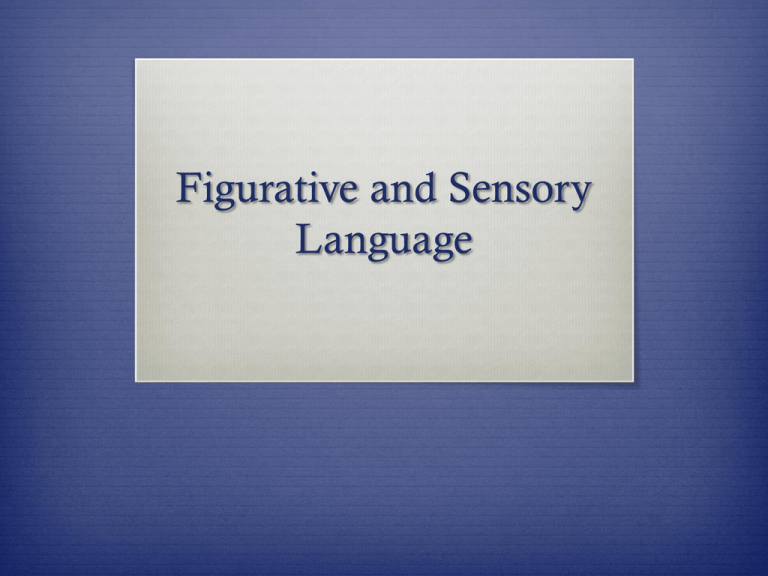
Figurative and Sensory Language Warm Up Read silently for 10 minutes. Write a five sentence summary of what you have read. Poetry Workshop Read page 436 in your text book (silently or with a partner) List the five most important ideas/ facts in your interactive notebook. Let’s read a poem…remember the steps for poetry analysis: 1. Read it at least twice. 2. Look for sensory language and figurative language 3. NOTATE EVERY STANZA! – seriously it helps… 4. Write theme/ main idea at the bottom Life Doesn’t Frighten Me: Page 288 What is the message in the poem? What figurative or sensory language is used? What conflict does the speaker face? Think back to when we read Tuesday of the Other June. How were the conflicts similar? Different? Do the two texts have similar themes (lessons)? Summary How does the poem Life Doesn’t Frighten Me connect to you? Warm Up- Copy these vocabulary words and definitions Connotation Denotation Tone Mood Dialect Diction Imagery Audience In groups… You will be assigned a new vocabulary word from the list. Create a poster and presentation to teach the word to the class. INCLUDE ON YOUR POSTER Definition of the word in your own words 2 synonyms 2 examples Picture Present to the class TODAY! Present Poster Speak clearly Everyone Speaks No nerves Warm Up: Give an example of each: Hyperbole Metaphor Simile Personification What is denotation? The strict dictionary meaning of a word What is connotation? The emotional and imaginative feelings surrounding a word Purpose of Words • To label things • I live in a house. • To express a point of view • I can’t wait to go home for the holidays. Connotation Positive- brings good feelings We bought inexpensive souvenirs at the amusement park. Negative- brings bad feelings We bought cheap souvenirs at the amusement park. Connotation: Positive Everyone had a (smile, smirk) on his/her face on the ride home. Everyone had a smile on his/her face on the way home. SMILE is more positive than smirk Connotation: Negative I ate a (soggy,moist) sandwich. I ate a soggy sandwich SOGGY is more negative than moist Positive? You Decide! average mediocre childish childlike spit saliva antique old-fashioned Read the poem- Home Away from Home Answer the questions about connotation Ticket Out One sentence summary- what did you learn about connotation and denotation? Warm Up Mood Definition Sentence Synonym Picture Eleven Listen to the story Eleven Page 198- Literature Book Page - interactive reader In the interactive reader make notes and answer questions in the margins. Use the chart to analyze the elements in the text (Figurative language, sensory, imagery, connotation) Word or Phrase from Meaning Text Connotation pos./neg. Effect on the Text Writing Time Write a paragraph to explain how the words and phrases used in Eleven created a mood or feeling. Use the chart to help you site specific examples in the text. Write in interactive notebook. Warm Up Focused Free write What is the best part about growing up? What is the worst part? Explain. Uncle Septimus’ Beard Listen to the story Uncle Septimus’ beard Page - Literature Book Page - interactive reader In the interactive reader make notes and answer questions in the margins. Use the chart to analyze the elements in the text (Figurative language, sensory, imagery, connotation) Word or Phrase from Meaning Text Connotation pos./neg. Effect on the Text Writing Time Write a paragraph to explain how the words and phrases used in Uncle Septimus’ Beard created a mood or feeling. Use the chart to help you site specific examples in the text. Write in interactive notebook.
